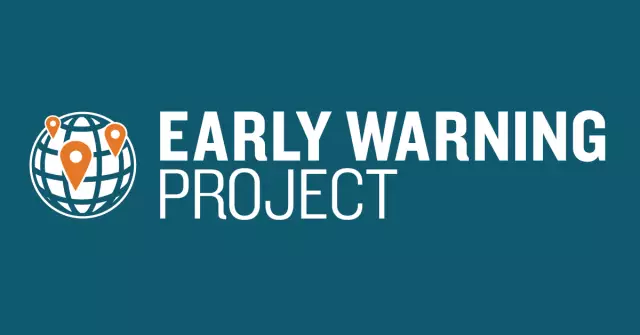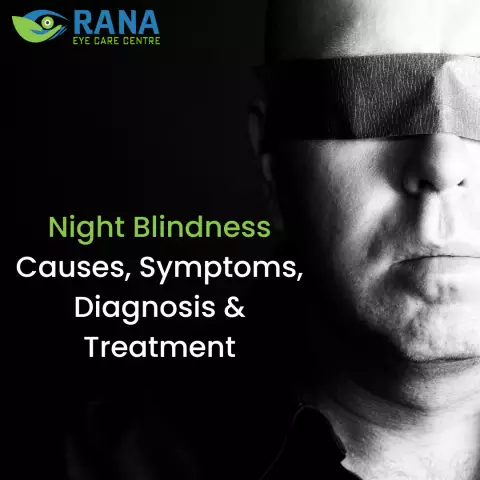- Author Rachel Wainwright wainwright@abchealthonline.com.
- Public 2023-12-15 07:39.
- Last modified 2025-11-02 20:14.
Convulsions at night

The emergence of sharp, "unplanned" muscle contractions occurs due to the malfunction of calcium channels. For muscle contraction, sodium, potassium and magnesium cations are required. Each of them plays a role.
- Sodium - provides resting potential;
- Potassium - stimulates cell stimulation;
- Magnesium - changes the period of contraction to the resting stage.
Calcium ions participate directly in the process, without which not only muscle contraction is impossible, but also the vital activity of the body. During wakefulness, calcium cations are used to work the muscles, during sleep, normally they are deposited in the bone tissue depot.
With increased tension of the muscular apparatus, cramps occur at night, mainly in the legs. First in the shins, then all over the leg. If a person works more with his hands, fingers become numb, tingling is felt in the palms, and then spastic contractions occur. This is how contractures are formed - persistent muscle contractions that disrupt functions: writing spasm, obstetrician's hand.
Cramps at night, reasons
With electrolyte metabolism disorders, convulsions occur at night for a number of reasons:
- Muscle fatigue;
- Water imbalance - edema or dehydration of the body;
- Flat feet;
- Sedentary work or other work activity associated with prolonged standing on their feet (salespeople, teachers, surgeons).
As a rule, older people have seizures at night. This is due to the age-related anatomical and physiological characteristics.
With certain diseases, convulsions also appear at night, the causes of which lie in disorders of electrolyte metabolism:
- Diabetes mellitus and diabetes insipidus;
- Dysfunction of the thyroid gland;
- Hypoglycemia, regardless of the cause: illness or basic starvation.
In diabetes, electrolytes are lost in the urine, which provide muscle relaxation.
Dysfunction of the thyroid gland leads to a decrease in calcium concentration, or, conversely, to increased sensitivity of muscle cells. That is, convulsions at night occur with both a decreased and increased activity of the thyroid gland.
Drugs that cause seizures at night
Indirectly, the appearance of seizures at night is influenced by diseases that have nothing to do with the mechanisms of muscle contraction. This is due to the intake of medications prescribed to lower blood pressure and improve the functioning of the cardiovascular system. Many blood pressure pills contain diuretics, which work by losing potassium in the urine. With a lack of potassium, the phase of the resting potential turns out to be unsupported, even with a normal content of magnesium cations. It turns out like this: magnesium "sends" calcium to the cell store, and the channel for sodium ions does not close. The muscle spasm continues, convulsions occur at night, mainly in the morning with exhaustion of all adaptation mechanisms.
The only potassium-preserving diuretic is veroshpiron, an analogue of vasopressin, a hormone of the anterior pituitary gland. All other drugs act at the level of the renal tubules, blocking the receptors responsible for the absorption of potassium from the primary urine.
In addition, some drugs have a selective effect on certain receptors that are located in the vessels, as well as in the nervous and muscle tissue. Some patients taking alpha-blockers have seizures at night similar to restless legs syndrome. This is a manifestation of the convulsive activity of the calf muscles.
Seizures at night, risk factors
People with the following predisposing factors are most susceptible to the appearance of seizures at night:
- Heredity;
- Occupation associated with muscle strain;
- Congenital deformities of the musculoskeletal system;
- Alcoholism;
- Addiction;
- Pregnancy.
Hereditary predisposition is revealed in most cases, as it is associated with the individual characteristics of electrolyte metabolism and excitability of the central nervous system.
Professional activities that overstrain certain muscle groups often provoke cramps at night due to fatigue at the cellular level. There is not enough energy for the operation of potassium-sodium channels, since almost all energy resources were consumed during the day (day).
Congenital anomalies of the musculoskeletal system lead to an increase in energy expenditures during the day, therefore, cramps at night for such people is a fairly frequent manifestation of fatigue.
With alcoholism, there is a direct toxic effect on the liver cells, damage to which leads to electrolyte imbalance. Removal of phosphorus from neurons leads to increased excitability. Therefore, convulsions occur at night in persons suffering from alcoholism.

Drug addiction also leads to liver damage, but ten times faster than alcoholism. At the same rate, nerve fibers are destroyed, as a result of which the neurons are "exposed". They react to any external influence. This is how convulsions appear at night, and not only in a state of withdrawal.
During pregnancy, calcium cations necessary for fetal development are washed out of the venous walls. Therefore, convulsions at night and even during the day appear only with a state of vitamin deficiency and insufficient intake of calcium from food.
Body cramps at night
Convulsive contractions of certain muscle groups can occur in completely healthy people, but most often body cramps at night are a sign of a disease of the nervous system. When signs such as violent grimaces, twitching of the eyelids, legs, raising an arm in a dream appear, it is necessary to consult a neurologist. First of all, it is important to exclude epilepsy, which can lead not only to single muscle movements, but also to somnambulism.
Found a mistake in the text? Select it and press Ctrl + Enter.






